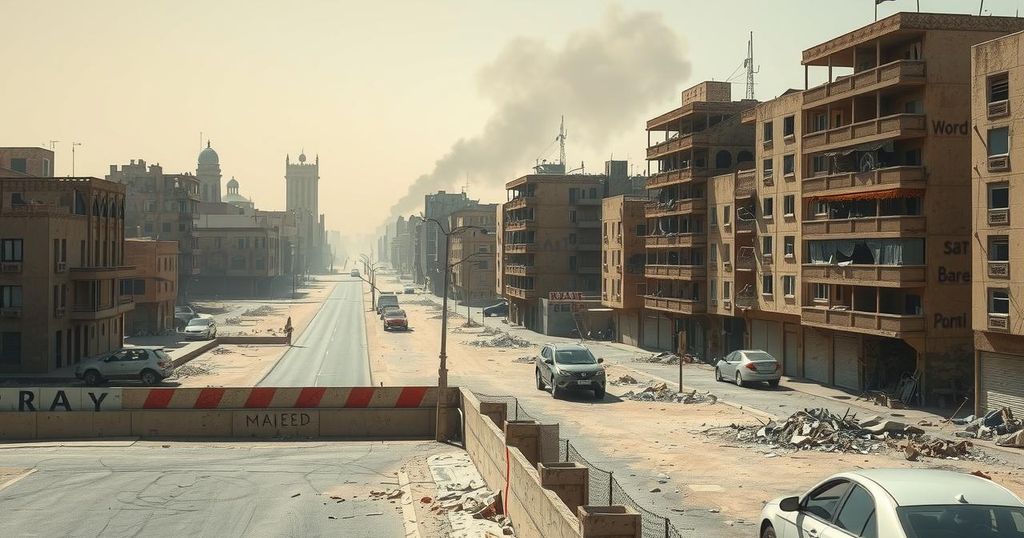The conflict in Sudan remains severe, especially in Khartoum, where military control has been regained, yet stability is elusive. Displaced civilians face critical humanitarian challenges, and grassroots efforts are vital despite increasing risks. Experts warn that the RSF’s stronghold in Darfur prolongs the struggle, while international aid responses remain inadequate. A deeper geopolitical understanding of the conflict is essential as the humanitarian crisis escalates.
The ongoing conflict in Sudan still presents a grim situation, particularly in Khartoum, where the military has regained control from opposing forces. The once-thriving capital has become a desolate region populated by displaced individuals and suffering from extensive damage to its infrastructure. Humanitarian efforts are currently relying on grassroots initiatives, with local responders actively engaged despite facing significant adversity in the violent climate.
While the military’s recent control over strategic locations, including the presidential palace and central bank, appears to be a step toward regaining stability, the situation remains precarious. The plight of civilians is compounded by the pressing humanitarian crisis, as reports indicate that two-thirds of Sudan’s population requires assistance. The weakened infrastructure not only hampers recovery efforts but also exacerbates widespread starvation and disease.
Experts emphasize that the current military hold does not guarantee peace or effective governance. Analysts underline that the Rapid Support Forces (RSF) have fortified their position in Darfur, suggesting a prolonged conflict. While local civilians aim to rebuild their lives despite tremendous risks, many remain trapped in dire circumstances, continually facing threats and limited access to essential services and aid.
Compounding the crisis is the international community’s insufficient response to the humanitarian catastrophe. Experts advocate for a neutral humanitarian approach, insisting that the delivery of aid must continue, independent of political developments. As the internal dynamics of the Sudanese Armed Forces exhibit potential fractures, analysts urge a deeper understanding of the geopolitical implications influencing the conflict. Presently, Khartoum’s future remains uncertain as the struggle for peace continues amidst rampant violence and instability.
In conclusion, the situation in Sudan, particularly in Khartoum, signifies a complex interplay of military control and humanitarian crisis. The recent military gains have not led to any immediate stabilization, and civilians continue to suffer the repercussions of conflict. Analysts stress the urgent need for both a cohesive international response to the humanitarian needs and an understanding of the multifaceted nature of the conflict, which intertwines local struggles with broader geopolitical interests. Without significant intervention, the humanitarian plight is likely to persist, demanding ongoing attention and action from the global community.
Original Source: www.arabnews.pk




